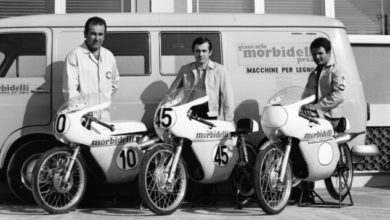4/4/2011-Retail lenders cite improved benchmarks
Lower bad debts could equal more aggressive buying
The positive effects of even a slightly better economy should not only lift consumer confidence this spring, but have a marked impact on an equally important industry issue: retail lending criteria.
Some of the industry’s largest and most active retail lenders told Powersports Business that key profitability benchmarks have improved and thus, they are either already loosening their lending standards or are in the midst of examining those.
“We’ve always been aggressive,” Sheffield Financial CEO Jack Snow told Powersports Business. “We want to book every loan that we can book, but I think we’re going to look at these loans a lot harder this year.”
That sentiment was repeated by other industry retail lenders, all of whom are reporting decreases in bad debts and loan delinquencies.
“In general we’re feeling more comfortable with the consumer these days,” said Jeff Karls, GE Money’s vice president of marketing. “We continuously review the performance of our powersports portfolio to identify opportunities where we can prudently increase our approval rates.”
The difference in lending approval rates was perhaps first noticeable in Polaris Industries’ fourth-quarter earnings report. The manufacturer said its approval percentages — a combined amount from all of its retail lenders — eclipsed the 60 percent mark, a noticeable improvement over the past several quarters.
While Polaris can draw a more affluent consumer than other OEMs due to its UTV sales volume, the findings did lead to an important question: Are lending criteria loosening?
“I don’t think it’s a weird blip,” Snow said of Polaris’ recent improved approval rates. Snow’s company, Sheffield, is one of Polaris’ retail lending partners.
“I think the better shopper is now starting to stick his head out,” Snow said, “and we’ve seen that through all of our lines of businesses, not just Polaris.”
Another Polaris retail lender, HSBC, noted it has loosened its retail lending requirements.
“We have generally opened our underwriting criteria across our powersports portfolio, but lending standards remain more stringent than pre-recession levels,”?said Steven Mattics, executive vice president and head of HSBC Retail Services.
FreedomRoad Financial’s Tom Collins has seen another significant change.
The executive vice president of the retail lender that works with Triumph, Ducati, Piaggio and other industry OEMs has seen a change on the collections side of the business. Rather than calls from consumers reporting sudden unemployment, Collins said the business is receiving calls from consumers who now have jobs and want to catch up on late payments.
“That is definitely music to our ears,” he said.
“What that has done for us is driven down our (loan) delinquency rate quite significantly to the point where we’re starting to question, ‘Heh, can we take on a little more risk here?’”
And in fact, the company has done just that in some of its more credit-challenged client categories. The willingness to loan to the more risky consumer is partially due to another welcome trend — customers more willing, and able, to provide cash down payments.
“Money down is the game changer,” Collins said. “When they (the consumer) bring that into the equation, we jump all over those deals because we can put those deals together.”
An improved credit portfolio — fewer loan delinquencies — also is being seen elsewhere.
Sheffield’s Snow says his company’s past dues and bad debts were so low in February, he actually asked his collections department to run the numbers twice, thinking they had made a mistake on the first data set.
“That’s going to make us buy a lot more,” Snow said of Sheffield’s improved bad debt situation. “If your past dues get so low, then you say, ‘Wait a minute. I’m leaving too much on the table.’” PSB




